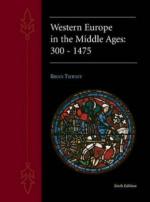|
This section contains 1,302 words (approx. 5 pages at 300 words per page) |

|
| 814 | Emperor Charlemagne dies. Under his auspices, numerous innovative programs are undertaken that contribute, directly and indirectly, to the development of medieval theater and the preservation of ancient Roman plays. |
| c. 825 | Amalarius, bishop of Metz (778–850), expresses concern over the overtly dramatic nature of the Mass, indicating that he views the devotional practices of the medieval Christian Church as inherently theatrical. |
| c. 850 | Heroic poems in many European languages have already been written and performed, notably the Anglo-Saxon Beowulf and the Germanic poems that will later contribute to the Nibelungenlied. |
| c. 900 | Evidence shows that many European monasteries, like that of Saint-Gall in Switzerland, are developing new and dramatic approaches to worship. |
| c. 950 | Revivals and imitations of ancient Roman comedy are being performed. |
| c. 960 | King Edgar of England complains that the monasteries of his realm are so decadent they are being publicly mocked by professional actors... |
|
This section contains 1,302 words (approx. 5 pages at 300 words per page) |

|




